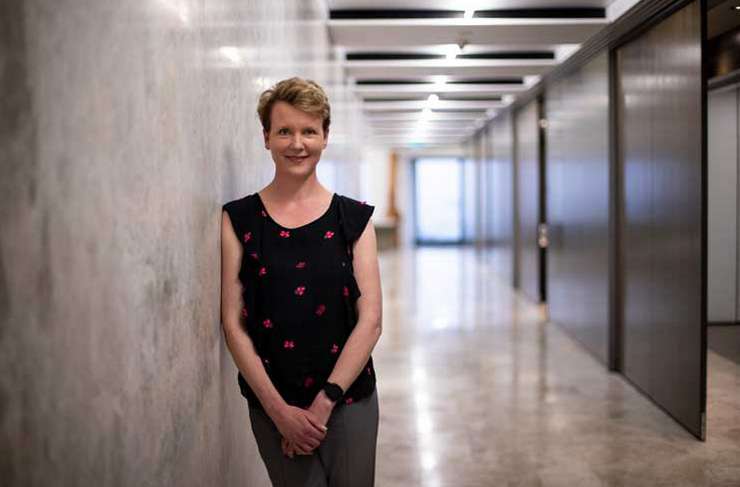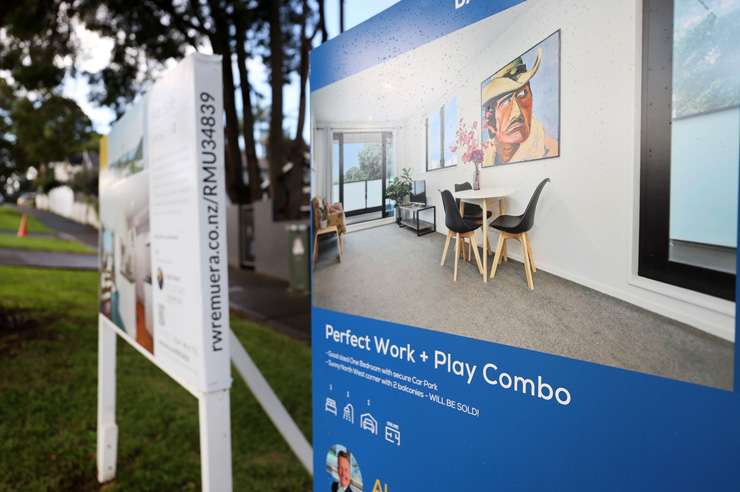The last three years have been a “pretty crazy ride” for New Zealand, says ANZ’s chief economist Sharon Zollner.
She, like most of the bank economists and experts interviewed by OneRoof about the post-Covid housing market surge and subsequent decline, believes it is unlikely Kiwis will again see prices jump to record levels in such a short period of time.
“2021 was just insane,” says Zollner. “House prices went up 30% in a year when our normal indicators would have suggested that they were going to go up 15%.”
In hindsight, the stimulus pumped into the economy by the Reserve Bank of New Zealand (RBNZ) and the government was too much. “When Covid hit, there was a bit of global group think, and I’m certainly not excluding myself on that,” says Zollner.
Start your property search
Other economists also told OneRoof that they had expected Covid to have a massively negative impact on consumer confidence, spending, employment, and investment plans.
With the perceived risk being economic depression, the best option available to the government and RBNZ was to encourage people to spend, by pumping wage subsidies into the economy and reducing interest rates and easing credit rules.
“We all underestimated the power of fiscal policy. And, in particular, how effective the wage subsidies would be,” says Zollner.
RBNZ’s removal of loan-to-value ratio (LVR) restrictions for 12 months, also had unforeseen consequences. “Investors went to it, and it was an absolute bun fight between investors and first-time buyers, who just saw the housing market getting further and further away on them,” she says.
Read more:
- Tony Alexander: Seven shocks that will turn New Zealand on its head
- No plan B: Owner to sell Grand Designs NZ castle 'significantly below cost'
- How much money do mum and dad property investors lose every week?
“We also had the CCCFA [Credit Contracts and Consumer Finance Act] legislation, which put a lot of sand in the gears of the mortgage market and took the first-home buyers out of the picture for about three months while they worked out their new system for measuring avocado on toast.”
All in all, the stimulus didn’t just fill a hole. “It built a mountain and the economy was massively over-stimulated,” says Zollner.
Zollner says low unemployment has counteracted some of the effects of the housing market correction: very few people have been forced to sell and, in fact, the number of homeowners in negative equity is relatively small. “I wouldn't say that’s an achievement. It’s just a mathematical reflection of just how fast house prices went up and down again. The proportion of homeowners who bought at the peak was quite small.”

ANZ chief economist Sharon Zollner: “We all underestimated the power of fiscal policy.” Photo / Dean Purcell
Zollner says New Zealand has done well to inch its way out of a corner, but is not out of the woods yet. “House prices are still crazy high. Very few people suggest to me that it is a problem that house prices have fallen 16%. New Zealand society generally accepted that house prices had just gotten ridiculous and needed to come down.”
She adds: “We forget that before Covid we were having a debate about what we could do about our housing market. And then it went up 46%.”
As for whether New Zealand homeowners will ever see 2% interest rates again, Zollner says it’s within the realm of possibility. “I'm seriously telling people in my presentation that a realistic range for the OCR [official cash rate] two years from now is zero to 10%. A 0% scenario is another global financial crisis. The 10% scenario is a massive oil shock, probably driven by geopolitical considerations. They’re obviously, relatively extreme scenarios, [but] both are well within the realm of possibility.”
BNZ chief economist Mike Jones doesn’t rule out interest rates falling to 2% again either.
“Those interest rate cuts were there in response to a shock that no one had expected, which was Covid, and everything that brought along with it [including] lockdowns and hits to the economy,” he says.
“Obviously there are going to be unforecastable shocks in the future, whether they are economic shocks or health shocks. We just don't know what they [will be] and what response they’ll bring. But certainly in the immediate future, it seems pretty unlikely.”
Jones says one particularly interesting feature of the boom was that it was faster than the bust. “House prices went up at a pace of about 2% a month through the boom and fell about 1% a month during the so-called bust. So it's a pretty orderly decline. The disorderly part was the boom phase.”
He doesn’t believe we’ll see the likes of such a dramatic boom again. “It was a 40% house price explosion, [over] 18 months, and in some regions, it was 50 to 60%.
“It very much reflected a perfect storm of shortage of supply, in tandem with the lowest ever mortgage rates and a loosening of credit market restrictions. It’s pretty unlikely those conditions are ever going to repeat [simultaneously].”
ASB chief economist Nick Tuffley says with the right ingredients the 2020/21 boom could happen again, but it would be unlikely to get a coming together of such unusual circumstances. “We have a much better idea of how to handle a pandemic now. But all you need is another ingredient like a trade war or other shock where you get interest rates being cut to a very low level again. Possibly a decline in the amount of building happening and a huge surge in population.” But it would need to be extreme, says Tuffley.
Westpac senior economist Michael Gordon doesn’t think the factors that aligned in the last housing cycle aren’t going to happen in a hurry again. “It's extremely rare that the central bank will throw this much stimulus into an economy that doesn't actually need it. It’s extremely unusual that we'll have this combination of very low interest rates in an economy that is running hot,” he says.

For sale signs in Auckland. Economists believe another huge spike in prices is unlikely. Photo / Fiona Goodall
“With the beauty of hindsight, you know how well the economy absorbed the blow of Covid lockdown and came out of it. Even if the next sharp shock is another pandemic, you won't necessarily see the same policy response to it, given what we've learned.”
Kiwibank’s chief economist Jarrod Kerr says a lot of ingredients went into the last housing boom. The only missing ingredient in the mix that led to the boom was super strong migration flows. And they’re back now.
The bigger picture in the post-mortem of the Covid-era housing market has been just how chronic New Zealand’s shortage of houses has been, says Kerr. “That has highlighted how much of a problem [the housing shortage] is. We don’t have enough houses, and we are second and third problem in the New Zealand housing market, says Kerr. “It’s an unable-to-build-enough-houses, and that causes problems. Housing supply is the first, embarrassment that we can’t seem to build enough homes for the people we have.”
- Click to find properties for sale in New Zealand



















































































